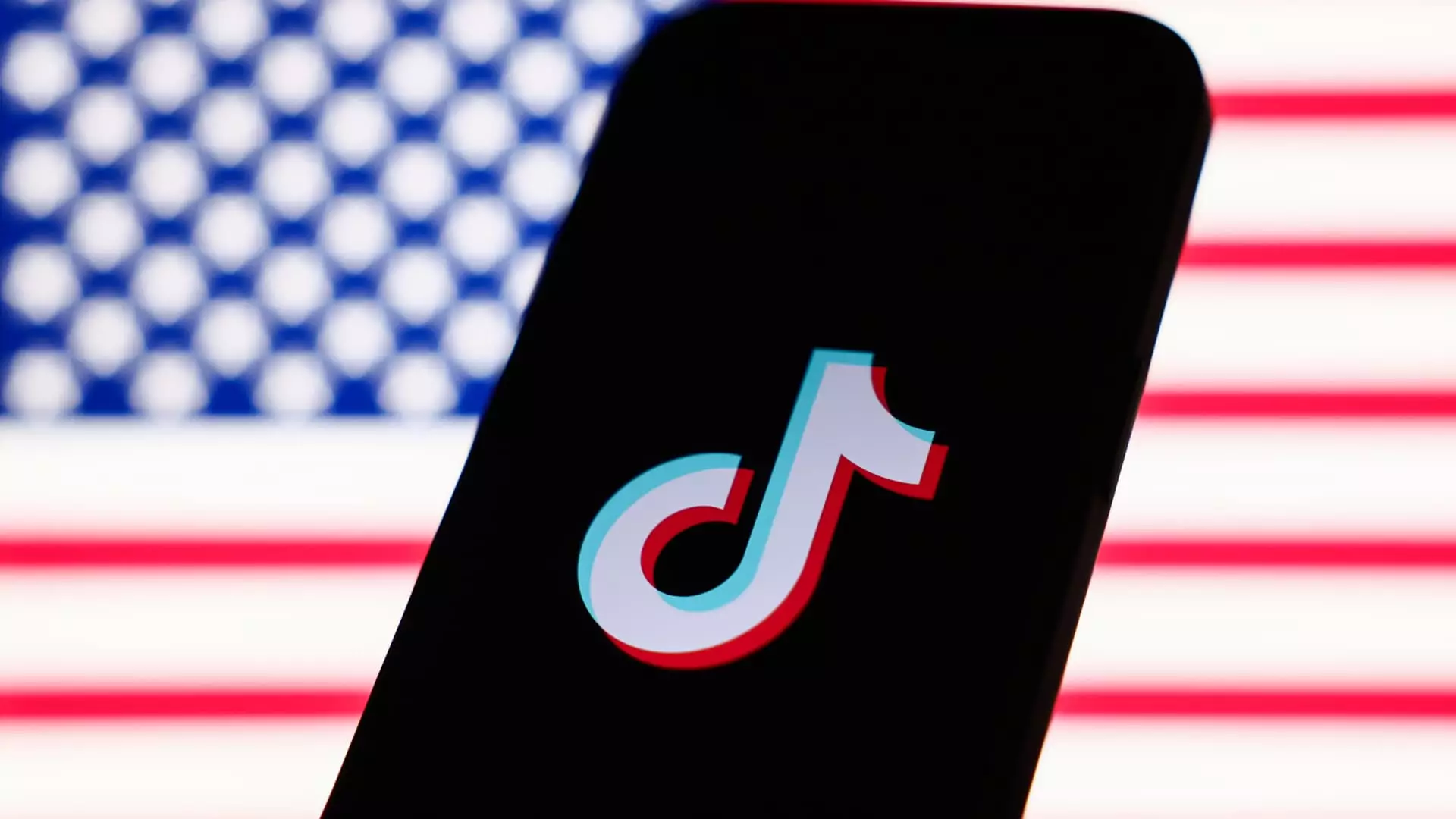In the ever-evolving landscape of social media and technology, the future of TikTok’s operations in the United States hangs precariously. The ongoing discussions surrounding the potential acquisition of TikTok’s U.S. division by high-profile figures such as Elon Musk raise essential questions regarding both market valuation and national security concerns. With looming deadlines and fluctuating valuations, the TikTok conundrum is not only a matter of business commerce; it has significant ramifications on tech governance, privacy, and competition among emerging digital platforms.
TikTok, owned by the Chinese company ByteDance, might be evaluated between $40 billion and $50 billion if it were to be sold to prospective U.S. buyers, according to Angelo Zino, a Senior Vice President at CFRA Research. This figure is particularly striking when compared to previous estimates that had the app valued at over $60 billion in earlier assessments related to national security legislation. The drop in valuation can be attributed partly to the heightened regulatory scrutiny that has enveloped TikTok due to its foreign ownership. The U.S. government remains concerned about potential security threats posed by the app, largely because it operates under Chinese laws that could compel data sharing, thus raising the stakes for any potential acquirer.
The fundamental components of Zino’s estimate highlight TikTok’s massive user base of around 115 million monthly users in the U.S., ranking it just after Instagram. Much of the company’s worth is driven by its engagement levels and advertising revenue—factors that could be significantly impacted by the potential regulatory challenges that accompany ownership transitions. As demonstrated by the weekly changing landscape of valuations, the market sentiment surrounding TikTok is a potent mixture of both business acumen and geopolitical strife.
While ByteDance has not made definitive moves to divest TikTok’s U.S. operations, several scenarios have emerged regarding potential buyers, including Elon Musk. The suggestion that a prominent figure like Musk could take over raises eyebrows due to his figure as a business leader often associated with innovation and risk-taking. However, it also emphasizes the complications surrounding a regulated sale and the scrutiny that such a high-profile transaction would inevitably attract.
According to reports from Bloomberg Intelligence, potential buyers face monumental challenges: they must not only muster the funds to acquire a platform embroiled in controversy but also navigate a complex regulatory landscape that scrutinizes data privacy practices. Moreover, the potential exclusion of TikTok’s recommendation algorithms from any sale adds another layer of complexity, as these algorithms are crucial to the app’s functionality and success. Without these essential tools, a buyer could find it exceedingly difficult to establish future growth and maintain competitive advertising capacities.
As the stakes rise, consortiums of business leaders are also coming into play to explore options for purchasing TikTok. One such example is a bid led by billionaire Frank McCourt and O’Leary Ventures Chairman Kevin O’Leary, which operates under a significantly lower valuation of approximately $20 billion. This bid emphasizes a critical distinction in its approach: it seeks to negotiate the purchase without the recommendation algorithms, which could arguably simplify the regulatory barriers inherent in the acquisition process.
Notably, O’Leary has claimed this route shields them from the intense scrutiny that a high-profile acquisition would attract—an assertion that points to broader questions of how businesses can effectively mitigate risk and navigate regulatory landscapes in digital transactions.
The looming potential sale of TikTok’s U.S. operations serves as a case study in the intersection of commerce, privacy, and national security. With business titans considering acquisition bids amid the uncertainty of regulatory constraints, TikTok’s future remains delicate. The evolving valuation landscape reflects wider concerns as stakeholders navigate the rapidly changing world of digital governance. In this environment, understanding what a potential acquisition entails—beyond mere financial figures—will be crucial for ensuring the longevity and security of social media platforms while respecting regulatory frameworks. What lies ahead for TikTok could set vital precedents for future technology transactions in an increasingly interconnected world.


Leave a Reply